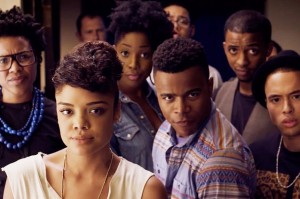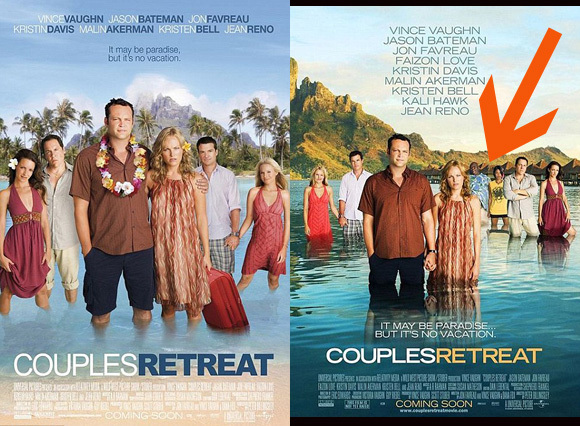 Before I turn to whitesplaining this film, I will begin by suggesting that you read what Aisha Harris at Slate and what my friends and fellow critics Travis Hopson and Stephen Boone have to say first. If I did not have enough humility before seeing the film about my ability to provide some insight into a movie about racism, the best evidence of the power of the film’s message is that I have more now — and that I recognize it might still not be be enough. I liked the film very much and want to encourage people to see it, so I am going to weigh in with some thoughts and hope that if they come across as disrespectful or ignorant, it will lead to some good conversations and, I hope, to greater understanding.
Before I turn to whitesplaining this film, I will begin by suggesting that you read what Aisha Harris at Slate and what my friends and fellow critics Travis Hopson and Stephen Boone have to say first. If I did not have enough humility before seeing the film about my ability to provide some insight into a movie about racism, the best evidence of the power of the film’s message is that I have more now — and that I recognize it might still not be be enough. I liked the film very much and want to encourage people to see it, so I am going to weigh in with some thoughts and hope that if they come across as disrespectful or ignorant, it will lead to some good conversations and, I hope, to greater understanding.
The focus is on four African-American students at an Ivy League school called Winchester University. Sam White (a biting but layered performance by standout Tessa Thompson) is the host of “Dear White People,” a controversial radio program with stinging, provocative commentary along the lines of “Dear white people: The official number of black friends you are required to have has now been raised to two. And your weed man does not count.” Coco (Teyonah Parris) is an ambitious woman who wants to be selected for a new reality TV series, even if that means creating a fabricated backstory and becoming more confrontational. Troy (Brandon P Bell) is the handsome, accomplished BMOC (and son of the dean) who says he has never experienced prejudice and is under a lot of pressure from his father to succeed. And Lionel (Tyler James Williams) is something of a loner because he feels he does not fit in with any of the rigid categories of the campus hierarchical taxonomy. He is invited by the editor of the school newspaper to go undercover to write about race relations at the school.
Each of these characters’ identities and conflicts is represented in their hair. Sam has tight, controlled coils. Coco has long, straight hair. Troy’s hair is cut very close to the bone. And Lionel’s hair is a marvel of untamed frizz that seems to be a character of its own. Each of the characters will face challenges to his or her carefully constructed identity, and all will be reflected in changes of hairstyle.
The dorm that had previously been all-black is now integrated following a race-blind room assignment policy. Sam takes on Troy in an election for head of house, never anticipating that she might win. But she does. This leads to some changes, including a confrontation with the arrogant frat-bro Kurt (Kyle Gallner), son of the white President of the university and leader of the school’s prestigious humor publication. Kurt is the kind of guy who expects to be allowed to eat wherever he likes, even if he is not a member of the house. He also explains that we live in a post-racial world because Obama is President. And he thinks it is a great idea to plan a “ghetto” party, with white students dressing up as gangsta caricatures.
Just to remind us that, while the movie may have a heightened sensibility for satirical purposes, it is not outside the realm of reality, the closing credits feature a sobering series of photos from real “ghetto” parties held on campuses across the country.
It is refreshing, provocative, and powerfully topical, respecting and updating the tradition of “School Daze” and “Higher Learning.” It deals not only with questions of race but with broader questions of gender, class, identity, and the way we construct our personas, especially in our late teens and early 20’s. Writer/director Justin Simien has created a sharp satire with an unexpectedly tender heart.
Parents should know that this film includes very strong language including racial epithets, sexual references and situations, drinking, drug use, and tense confrontations about race, class, and gender.
Family discussion: Where do the people in this movie get their ideas about race, gender, and class? Which character surprised you the most and why? Do you agree with what Sam said about racism?
If you like this, try: “School Daze” and “Higher Learning”





